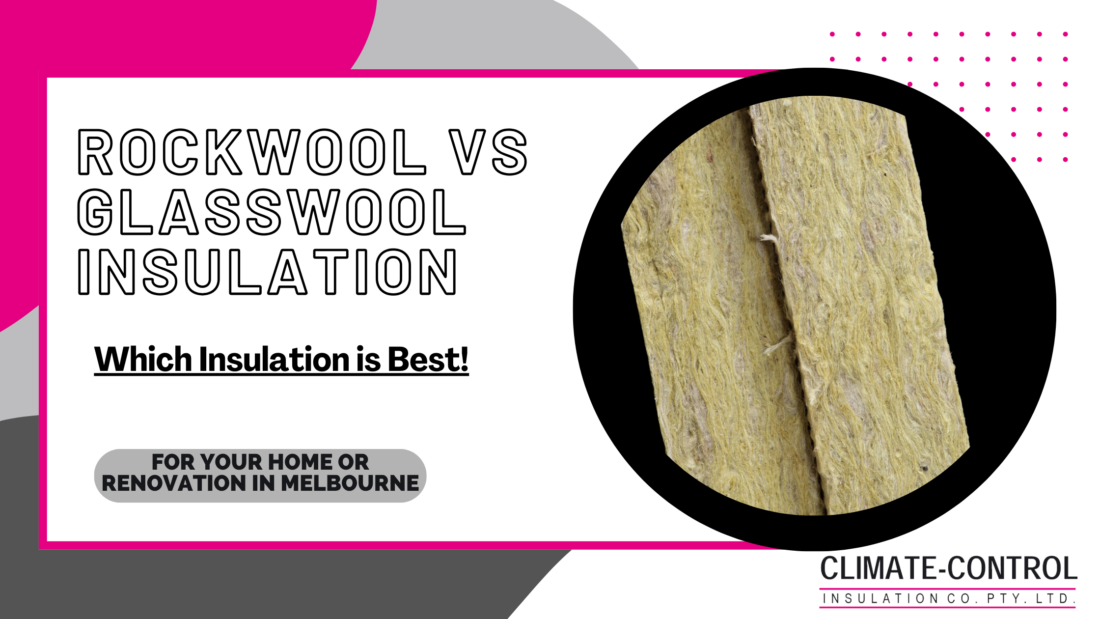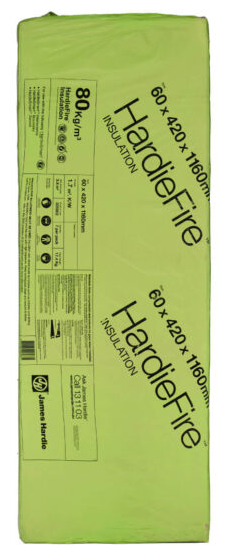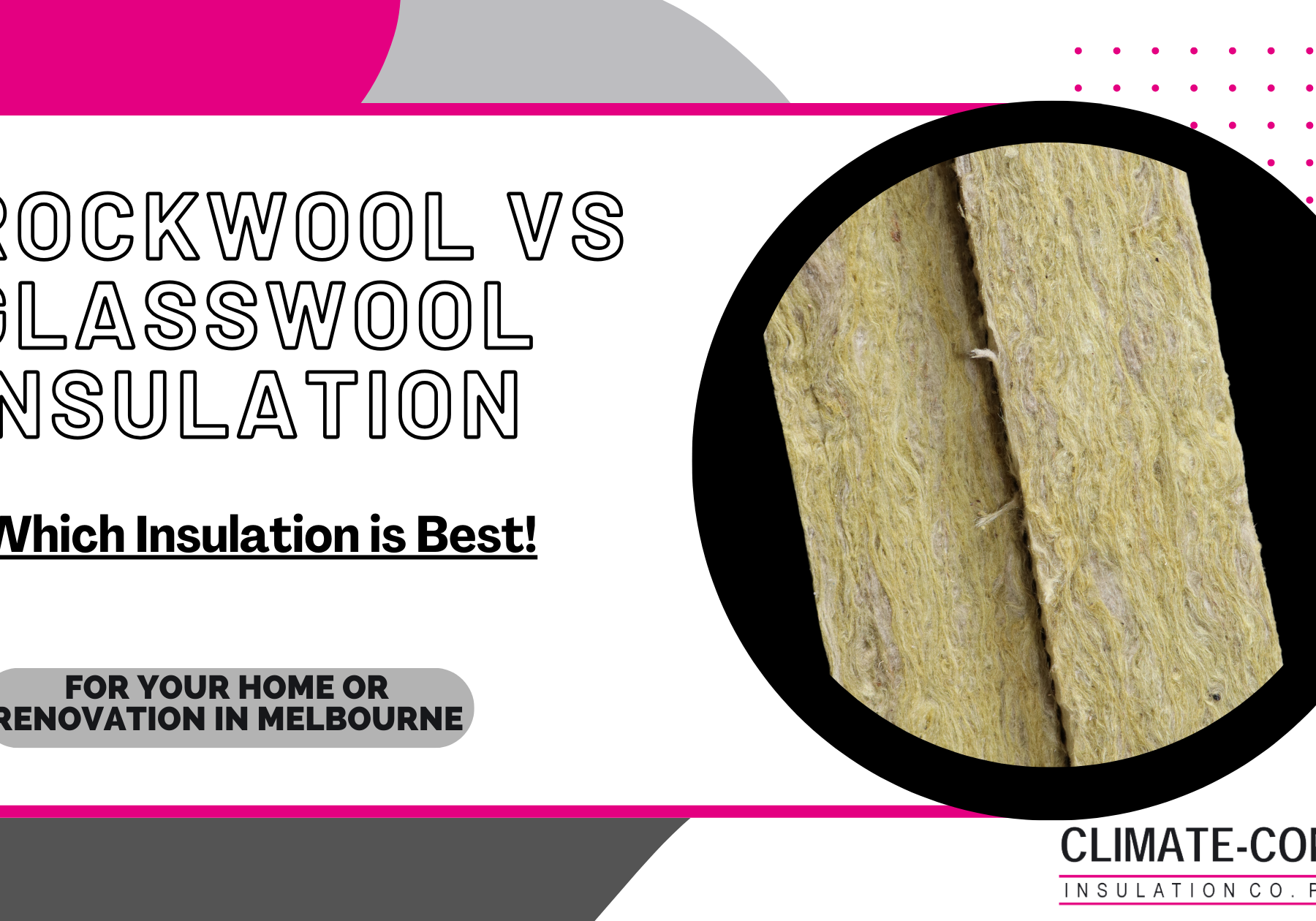Your cart is currently empty!
Rockwool Insulation vs Glasswool: 5 Pros and Cons Explained
Posted April 2025

This guide provides a comprehensive overview of Rockwool batts, including their features, applications, and performance benefits. We cover their benefits and downsides. We also compare them to other options. Finally, we discuss where they work best in homes across Victoria.
What is Rockwool Insulation?
Manufacturers create Rockwool, also known as stone wool, from natural volcanic rock (typically basalt) and recycled slag. Workers melt the raw materials at high temperatures, then spin them into fibers to create insulation batts or rolls. These batts are dense, durable, and known for their fire, sound, and moisture resistance.
Key Benefits of Rockwool Insulation
✅ Great Fire Resistance Rockwool does not burn and can withstand temperatures over 1,000°C. This makes it a great choice for places that need high fire safety. It meets AS/NZS 1530.1 standards and often receives classification as a fire rated batt.
✅ Superior Acoustic Insulation Rockwool is exceptionally good at reducing noise. Perfect for soundproofing between rooms or in shared walls of townhouses and duplexes. For soundproof insulation, Rockwool offers superior acoustic performance compared to standard glasswool.
✅ Thermal Performance Rockwool batts provide good thermal insulation. They help reduce heat loss in winter and heat gain in summer. This helps stabilise indoor temperature and reduce your energy bill.
✅ Water & Moisture Resistant Unlike glasswool, Rockwool is hydrophobic, meaning it repels water and resists mould. This makes it a good choice for wet areas. These include bathrooms, basements, and homes in humid places like the Mornington Peninsula.
✅ Long-Lasting & Durable Rockwool insulation can last for 50+ years when properly installed. It retains its shape and does not sag or degrade over time, which helps maintain thermal and acoustic performance.
Potential Drawbacks of Rockwool
❌ Higher Cost Rockwool insulation is generally more expensive than traditional glasswool or polyester batts. The extra investment may not be necessary in low-risk or low-noise areas.
Heavier and more rigid Rockwool batts are denser. This can make them harder to handle and install, especially for DIYers.
❌ Limited Availability While growing in popularity, not all insulation suppliers stock a wide range of Rockwool products. This can impact lead times for large or custom orders.
Best Applications for Rockwool in Melbourne Homes
🏠 External & Internal Walls Great for fire-rated wall assemblies or noise-sensitive areas like bedrooms, nurseries, or offices.
🍽 Between Floors Ideal for two-storey homes to reduce sound transfer between levels.
🏊 Bathrooms & Laundries Because it’s moisture-resistant, Rockwool works well in wet areas prone to humidity.
🚗 Garages & Workshops If fire safety and noise reduction are priorities, Rockwool provides reliable protection.
You can use Rockwool in roof spaces of high-heat zones where fire resistance and temperature control are important. (See: how to install Rockwool insulation in ceiling.)

Hardie Fire Batts
James HardieFire Rockwool Insulation
Rockwool vs Glasswool: Which is Better?
Rockwool is a strong long-term choice for projects that need fire-rated insulation or face high levels of noise or moisture.
See what Sustainability Victoria says about choosing the right insulation for your home.
Common Questions About Rockwool Insulation
Does Rockwool insulation burn?
No. Rockwool is non-combustible and fire rated to temperatures over 1,000°C.
How long does Rockwool insulation last?
It can last over 50 years with proper installation and minimal degradation.
How do you cut Rockwool insulation?
Use a long-blade insulation knife or serrated blade. Mark measurements and cut on a firm surface.
How do you install Rockwool insulation?
Ensure you install batts tightly between studs, joists, or rafters with no gaps. Appropriate safety equipment, including gloves, goggles, and a mask, should be worn during installation. Consult product guidelines.
Can I install Rockwool in my ceiling?
Yes. It suits ceiling cavities, especially in areas that need extra fire protection or acoustic control.
Sustainability & Health Considerations
- Environmentally Friendly – Rockwool is often made with recycled content and can be recycled after use.
- Low VOC – Most Rockwool batts meet international standards for low volatile organic compound emissions.
- Resists Pests – Its dense, non-organic material is not a food source for rodents or insects.
Final Verdict: Is Rockwool Worth It?
Rockwool is a highly suitable insulation option for projects requiring enhanced thermal, acoustic, or fire-resistant performance. It provides strong thermal and sound insulation. It also offers fire resistance and moisture durability. Ideal for homes in Melbourne, especially in areas where noise, humidity, or bushfire risk are concerns.
It may cost more at first, but it can provide better comfort, safety, and energy savings over time than cheaper options. For homeowners and builders seeking premium insulation products, Rockwool is worth considering.

